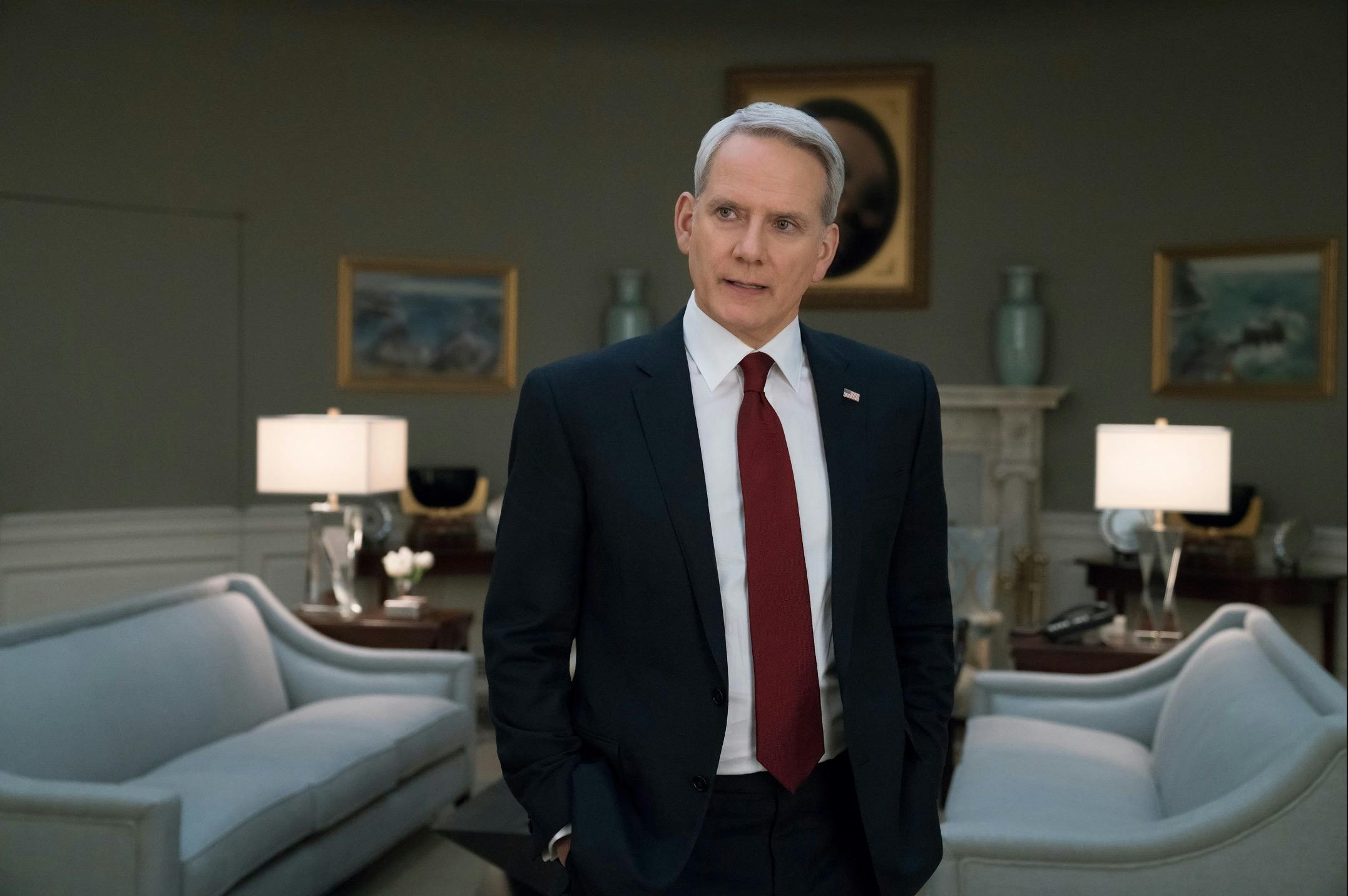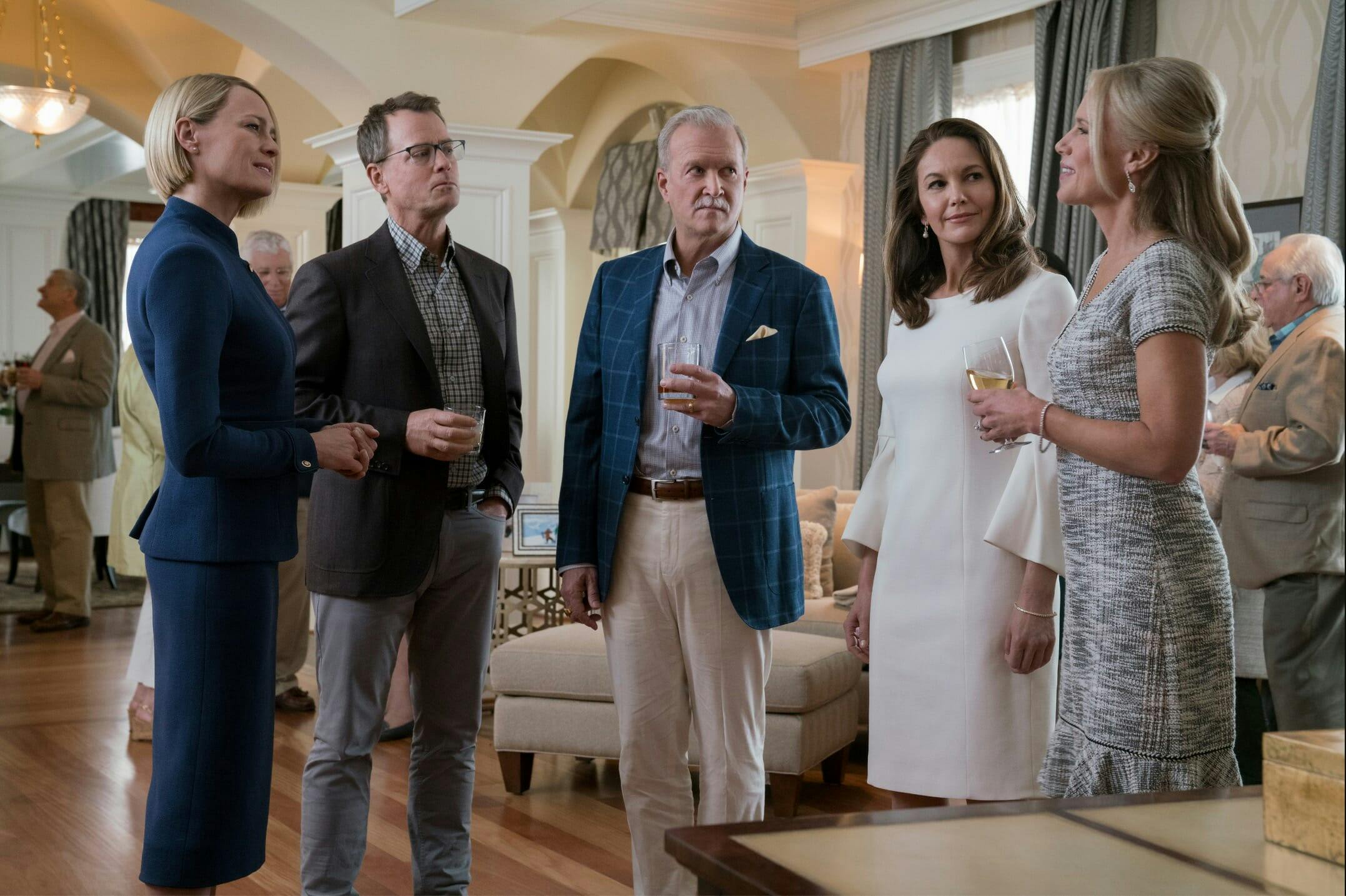Even before Netflix fired Kevin Spacey from the show amid sexual misconduct allegations last fall, the final season of House of Cards felt strangely inevitable. Whether you watched the original British series—or read its inspiration, Macbeth, for that matter—you might’ve predicted where it was going. Still, when First Lady and Vice President Claire Underwood (Robin Wright) became president the previous year, few probably would’ve imagined that she would become the center of the show entirely.

For our current cultural moment, the last season of House of Cards makes for a fitting finale. Just last year, people wondered if the show would become boring amidst our real-life political circus. But this season fascinates as a searing commentary on the #MeToo era, a reflection on the age of streaming television, and a continuation of the series’ classic “ripped from the headlines” approach to storytelling, which is no less outrageous than what we read about on a daily basis.
In addition to Wright, returning cast members include Campbell Scott as Mark Usher, now elevated to the office of vice president; Boris McGiver, cranky as ever in his role as crusading journalist Tom Hammerschmidt; Patricia Clarkson as elusive advisor Jane Davis; and Michael Kelly as the apparently un-killable Doug Stamper. Diane Lane and Greg Kinnear play the Shepherds, two siblings looking out for their corporate interests and new adversaries for Claire, with whom they have a complicated history. (Thomas Kopache, aka John Oliver’s “Catheter Cowboy,” also shows up as Claire’s Secretary of Defense at one point.)
Plenty of things stay the same on House of Cards‘ final season. Campy twists and turns still bely the show’s seriousness, and characters still scheme and stab each other in the back, which they justify with morally compromised reasoning and platitudes. But it takes time for all this season’s differences to sink in. Visually, the show’s muted blues and tans look lighter this year, and the show offers more flashbacks examining Claire’s upbringing and how it shaped her into the person she is now. These scenes aren’t always interesting, but they are necessary. Convincing audiences that this show is still essential, even without Spacey, is no small feat in a world where Jeffrey Tambor still appears in season 5 of Arrested Development.

“I need to bury Frances, once and for all,” Claire says at one point. It’s apparent from the onset that she won’t have an easy time doing so. Francis looms large over everything here, despite the fact that viewers never so much as see his face (at least not in the first five episodes given to critics). Doug accurately describes the series’ relationship with its former star and producer when he says, “Are you trying to erase him? Because you can’t.” The deaths of lighting technician Jim Tynes and actor Reg E. Cathy hang in the air as well, and this season is dedicated to them. In the wake of all these absences, the best word to describe the tone of House of Cards‘ final season is haunted.
This season’s difference becomes readily apparent in its outwardly feminist perspective. The show makes on-the-nose references to Simone De Beauvoir’s The Second Sex and Rosemary’s Baby, and a sampling of standout lines include: “You have a weakness for strong women”; “The reign of the middle-aged white man is over”; and “Turns out my husband was just a means to an end.” None of it is subtle, but subtlety was never House of Cards’ strong suit. Still, I couldn’t help but find these touches a little pandering. A scene in which Claire opens a door to reveal her (spoiler alert) new and improved, all-female cabinet is meant to be moving, but ends up feeling forced.
One of the most compelling questions the season asks is whether feminism in conjunction with acts of evil is still feminism. Claire is certainly a “strong female character,” to evoke that dreaded cliche. But she’s also, by any standards, a bad person. Her actions in previous seasons may have at least led to the sanctioning of other people’s deaths, and season six finds her flirting with outright murder more than once. She says of another character at one point, “We can make him president, just like we did with Frances.”
Is Claire really better than her husband if she’s willing to act just like him? Do her actions, assuming they cause good in the long run, outweigh the damage inflicted on those around her? Is her place as president merely an achievement of “white feminism,” which only allows for the progress of women who are already privileged?

There’s a lot to wrestle with here, but the show is better for it. I would rather live in a world where female protagonists can be as ruthless as their male counterparts, even if it makes them worse role models in the process. Season six works hard to position Claire as a feminist icon, but Wright’s skilled performance turns her into something more complex than a mere figurehead. She might be a smarter and more competent leader than Francis. But when push comes to shove, she’s a great character not for all the times she does the right thing, but for the many occasions on which she does not.
The last season of House of Cards is a strange beast, but it also delivers the best ending we could’ve hoped for at this point. “Maybe things would’ve been different… for this country,” one character muses to Claire, pondering what might have been had her husband not become president. By giving the final episodes to Claire, Netflix has shown how we can achieve some justice by putting talented women in the positions of power they deserve—if not in life, then at least in entertainment. Meanwhile, audiences are left to wonder how things might have gone were this Robin Wright’s show from the beginning.
Still not sure what to watch tonight? Here are our guides for the absolute best movies on Netflix, must-see Netflix original series, documentaries, docuseries, and movies.
Need more ideas? Here are our Netflix guides for the best war movies, documentaries, anime, indie flicks, true crime, food shows, gangster movies, Westerns, and movies based on true stories streaming right now. There are also sad movies guaranteed to make you cry, weird movies to melt your brain, and standup specials when you really need to laugh. Or check out Flixable, a search engine for Netflix.


